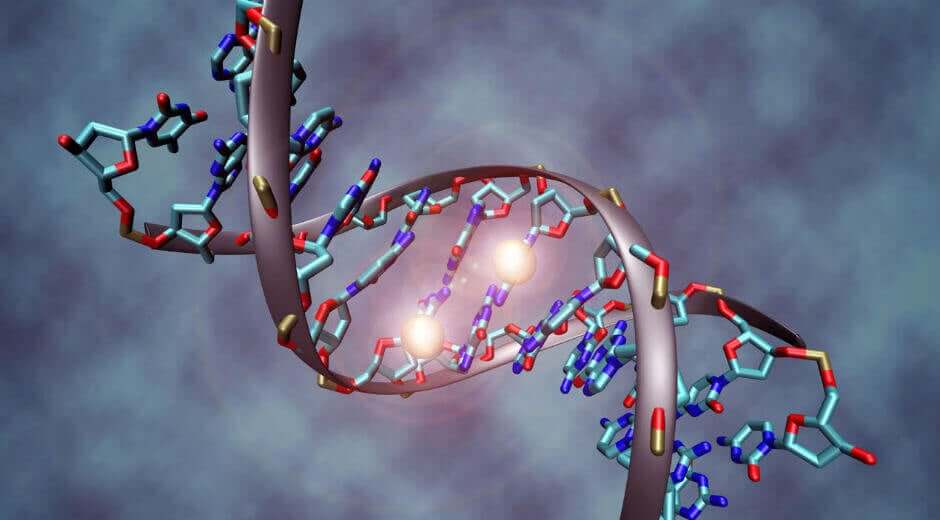What Is Precision Medicine?

Precision medicine is a very modern medical approach that seeks to offer each patient a completely personalized treatment, based on the recognition of their particular genetics. Ultimately, this perspective goes back to the teachings of Galen, who postulated that diseases shouldn’t be treated, but rather the people.
Precision medicine also goes by the name of personalized medicine. It identifies the specific characteristics of each person in order to formulate more precise diagnoses and carry out more effective treatments. It’s also used to predict and prevent future health problems in that patient.
In principle, precision medicine is based on the study of each person’s genes. However, other aspects, such as lifestyle and the influence of the environment, are increasingly being taken into account. Both the United States and China are investing heavily in this area.
What is precision medicine?
Precision medicine could be defined as a type of medical approach. It uses information about genes, proteins and other specific characteristics of the disease presented by each person, with the aim of establishing a diagnosis and determining the appropriate treatment for their disease.
It could be said that one of the immediate antecedents of this type of medicine was the use of Herceptin treatment, starting in 1998. This was an antibody that had demonstrated great efficacy in treating breast cancer. However, it only operated fully in patients who had a mutation in the HER2 gene.
This meant that doctors had to study each patient’s genetics to know whether or not Herceptin would work for them. That’s the basic outline of how precision medicine works. But it’s not just based on a particular gene, but on the entire genetic structure of each individual. Currently, specialists mainly use this type of medicine to treat cancer.

Also read: The Pan-Cancer Genomic Study: Spotting Tumors Before They Appear
How does it work?
Currently, conventional medicine diagnoses a disease when it’s already present, based on clinical examinations, tests, and the patient’s own history. Once doctors make a diagnosis, they start a treatment for all people with the same health issues.
However, these treatments are more effective in some people than in others. Likewise, some people have more side effects from the drugs than others. What precision medicine does is to anticipate this and prevent it from happening. It does this by analyzing the genetics of each person. Perhaps we can better explain this with a simple example.
Doctors often treat some immune disorders, such as rheumatoid arthritis, leukemia and some cancers, with drugs called thiopurines. However, some people are deficient in a substance called thiopurine methyltransferase (TPMT), and this leads to a failure to break down and eliminate these drugs quickly enough.
So, this causes the level of drug to remain too high in their bodies and undesirable side effects occur. Precision medicine can identify who has this deficiency and adjust treatment to be more effective and generate fewer side effects.

Discover more: Can You Drink Alcohol if You’re Taking Medicine?
Horizons and perspectives in precision medicine
The great promise of precision medicine is to be able to provide the right treatment to the right person at the right time. In general terms, this type of medicine works in three main areas to achieve greater efficacy in medical treatments. These areas are:
- DNA reading: The genetic profile is a fundamental piece of data in this approach and forms the basis for medical intervention. There are several ways of reading DNA and the objective is to choose, in each case, the one that’s most consistent.
- Data analysis: This involves contrasting the findings in a person’s genetic profile with the available data, i.e. with the research and experiments already carried out. This allows the interpretation of those individual findings.
- Translation of the results into clinical practices: In addition, specialists must translate all the gathered information into specific medical practices that improve the chances of successful treatment and consequent improvement in any given patient.
In the medium term, doctors will regularly apply precision medicine to diseases such as cancer and cardiovascular problems. They’re also a hope for those suffering from one of the 5,000 rare diseases. This type of medicine is in its early stages, but has very promising prospects.
All cited sources were thoroughly reviewed by our team to ensure their quality, reliability, currency, and validity. The bibliography of this article was considered reliable and of academic or scientific accuracy.
Gallo, A., & Jhony, A. (2018). Medicina de precisión: el futuro de la medicina. Revista de la Facultad de Medicina Humana, 18(2).
This text is provided for informational purposes only and does not replace consultation with a professional. If in doubt, consult your specialist.








